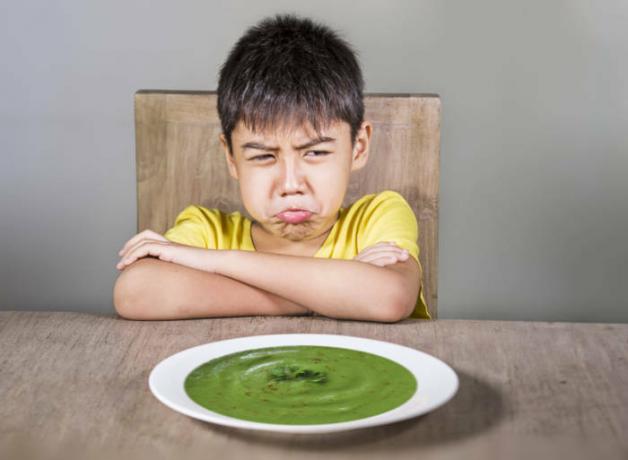There are stereotypes of nutrition, which in the modern world are long overdue. However, bad habits continue to be passed down from generation to generation.

Always eat to the end
Even if the child initially asked to put it on a smaller plate, they put him as much as the grandmother saw fit, and then he must finish eating everything to the end. What's the point of this? No one knows. Everyone should eat according to their appetite, especially a child. So he learns to listen to the signals of his body, not to overeat, set aside a plate when he is full. There is nothing wrong with the fact that the baby has not finished eating, the portion can be put in the refrigerator. But if you force him to completely eat up portions, the size of which is determined solely by opinion grandmothers, then there will be whims, and a bad mood, and refusal to eat, and eating disorders in the future. Many adults are so used to the fact that the plate must be left empty, that they eat through force and have excess weight from this.
Sweets as a reward for good behavior or consolationThis approach develops in the child the wrong relationship with sweets. Tell your grandmother how you can comfort the baby without resorting to buying sweets and cakes. Otherwise, very soon he will begin to eat both his victories and his defeats, rewarding himself with a chocolate bar and other delicious food. And you can encourage with an apple, after all.

Replace water with juices and compotes
The child initially needs to be accustomed to clean water, he will try the rest of the drinks and fall in love with time. But the constant use of compotes can discourage a child from drinking ordinary water. And it's still good if sugar is not added to the compote, otherwise caries will appear on children's teeth very quickly. "Hand" the child's grandmother along with a large bottle of water - this is the main drink that he should be offered.
Adding Sugar and Salt to Children's MealsGrandmothers, of course, do it out of the best of intentions - so that the baby tastes better. But, firstly, not all children initially like sweet and salty, they just gradually get used to it. Secondly, children should try a variety of tastes, feel the real taste of food, not clogged with sugar and salt. Often their addition in adulthood is a matter of habit, and very harmful.

Eating unpleasant but healthy food
Here it is worth noting separately that some foods that our parents once considered (and continue to consider) useful are not at all. For example, there is nothing useful for children and adults in semolina or polished white rice. A child may not tolerate milk porridge, or certain vegetables, fruits from a very young age. This is not a reason to panic at all. If he does not like potatoes or carrots, they can be replaced with other vegetables or cooked in a different way, give a try in a month. Most products have analogues in terms of the amount of vitamins and useful microelements, among which there are sure to be those that the baby will like.
Be sure to eat liquid - soup or borschtOther types of lunch are contemptuously called "dry rations" by grandmothers. First courses as such are not a bad habit. But there is no need to eat them every day, especially if the child does not like them or constantly gets dirty trying to dine on his own. In fact, there is no difference: eat soup or eat potatoes with vegetables and drink water. However, the same grandmothers believe that drinking food is harmful. And they don’t see a contradiction with the soup here. The first course for lunch is nothing more than a tradition. You can eat borscht three times a day, or you can - not once a week. If the child's diet contains enough varied food, vegetables, fruits, protein foods, then nothing bad will happen to his health without first courses.
However, the first dish without bread is impossible for a grandmother. And often the second one too. And a child with such mentoring begins to consume much more carbohydrates and excess calories than they should.
You will be interested to read 5 myths about healthy eating that you need to immediately forget.

